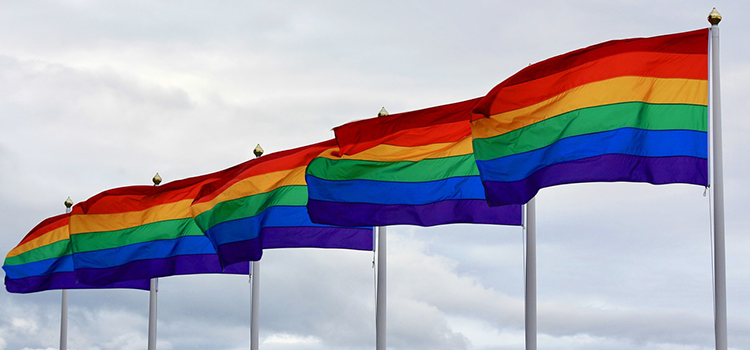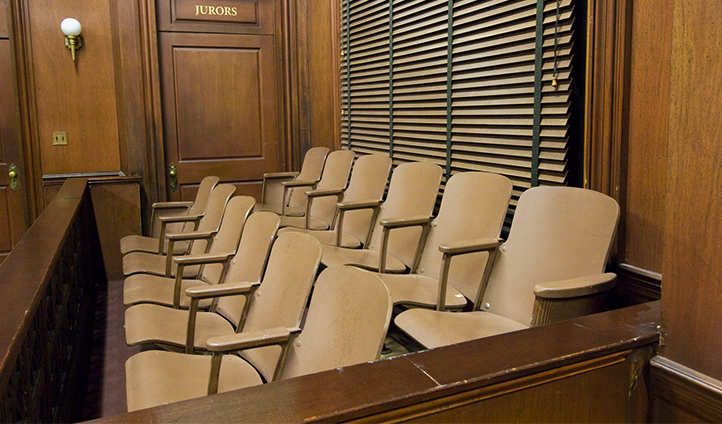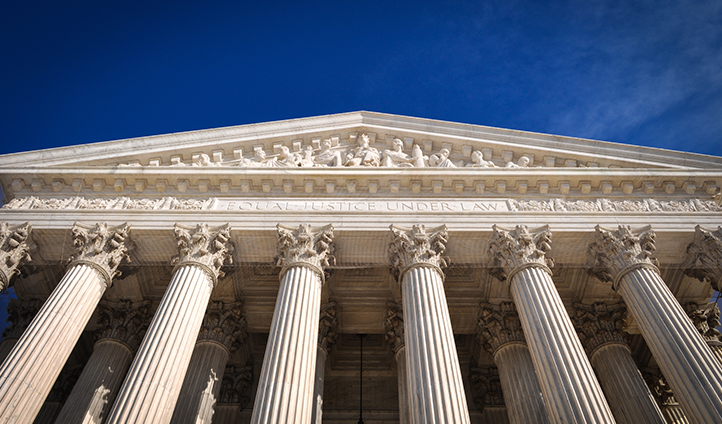Menu
Hot-Topics
February 5, 2026 | SCOTUS Decision in Bowe v. United States Is First of the 2026 Term
Category: Homepage post

Separation of Church and State Back Before U.S. Supreme Court
Religious liberty continues to dominate the high-profile cases before the Roberts Court. Next term, the justices will consider Espinoza v. Montana Department of Revenue, which involves whether states can be forced to use taxpayer funds to support re...

Supreme Court Preview: Can a State Abolish the Insanity Defense?
The U.S. Supreme Court’s criminal law docket for the October 2019 Term addresses some significant constitutional issues. In Kahler v. Kansas, the justices will consider whether the Eighth and Fourteenth Amendments to the Constitution allow a state...

Supreme Court to Take on LGBTQ Rights in the Workplace
Some of the most closely-watched cases the US Supreme Court will consider in October involve whether workplace discrimination based on sexual orientation and transgender status is covered by Title VII of the Civil Rights Act of 1964 (Title VII). The...

Flowers v Mississippi: Jury Selection in Death Row Inmate’s Case Was Unconstitutional
In Flowers v Mississippi, 588 U. S. ____ (2019), the U.S. Supreme Court held that the jury selection process in Curtis Flowers’ sixth murder trial violated the U.S. Constitution. By a vote of 7-2, the Court found that the trial court committed cle...

State-Actors Subject to the First Amendment in Manhattan Community Access Corp v Halleck
In Manhattan Community Access Corp v Halleck, 587 U.S. ___ (2019), the U.S. Supreme Court held that Manhattan Community Access Corp., a private nonprofit corporation designated by New York City to operate public access channels on the Time Warner-ow...

SCOTUS Sidestepped Challenge to Pledge of Allegiance in Elk Grove Unified School District v Newdow
In Elk Grove Unified School District v Newdow, 542 U.S. ____ (2004), the U.S. Supreme Court sidestepped a constitutional challenge to the Pledge of Allegiance. By holding that the plaintiff lacked standing, the Court avoided deciding whether the wor...

Court Upholds Warrantless Blood Test in Mitchell v Wisconsin
In Mitchell v Wisconsin, 588 U. S. ____ (2019), the U.S. Supreme Court held that the exigent-circumstances exception to the Fourth Amendment’s warrant requirement nearly always allows a blood test without first obtaining a warrant when a breath te...

Kentucky v Dennison First Interprets the Extradition Clause
In Kentucky v Dennison, 65 U.S. 66 (1861), the U.S. Supreme Court held that the Extradition Clause’s commands are mandatory and afford no discretion to executive officers of the asylum State. However, it further held that the federal courts h...

SCOTUS Affirms Auer Deference in Kisor v Wilkie
In Kisor v. Wilke, 588 U. S. ____ (2019), the U.S. Supreme Court narrowly affirmed the doctrine of Auer deference. However, the Court made it clear that the doctrine’s application has its limits. Doctrine of Auer Deference In Auer v Rob...
Previous Articles
SCOTUS Rules State Can’t Immunize Parties from Federal Civil Liability
by DONALD SCARINCI on January 29, 2026
In John Doe v. Dynamic Physical Therapy, LLC, 607 U.S. ____ (2025) the U.S. Supreme Court held that...
Supreme Court to Address Racial Discrimination in Jury Selection
by DONALD SCARINCI onWhile the U.S. Supreme Court has concluded oral arguments for the year, it continues to add cases t...
Supreme Court Halts Deployment of National Guard to Chicago
by DONALD SCARINCI on
In Trump v. Illinois, 607 U.S. ____ (2025), the U.S. Supreme Court refused to stay a district court...
The Amendments
-
Amendment1
- Establishment ClauseFree Exercise Clause
- Freedom of Speech
- Freedoms of Press
- Freedom of Assembly, and Petitition
-
Amendment2
- The Right to Bear Arms
-
Amendment4
- Unreasonable Searches and Seizures
-
Amendment5
- Due Process
- Eminent Domain
- Rights of Criminal Defendants
Preamble to the Bill of Rights
Congress of the United States begun and held at the City of New-York, on Wednesday the fourth of March, one thousand seven hundred and eighty nine.
THE Conventions of a number of the States, having at the time of their adopting the Constitution, expressed a desire, in order to prevent misconstruction or abuse of its powers, that further declaratory and restrictive clauses should be added: And as extending the ground of public confidence in the Government, will best ensure the beneficent ends of its institution.
Awards





